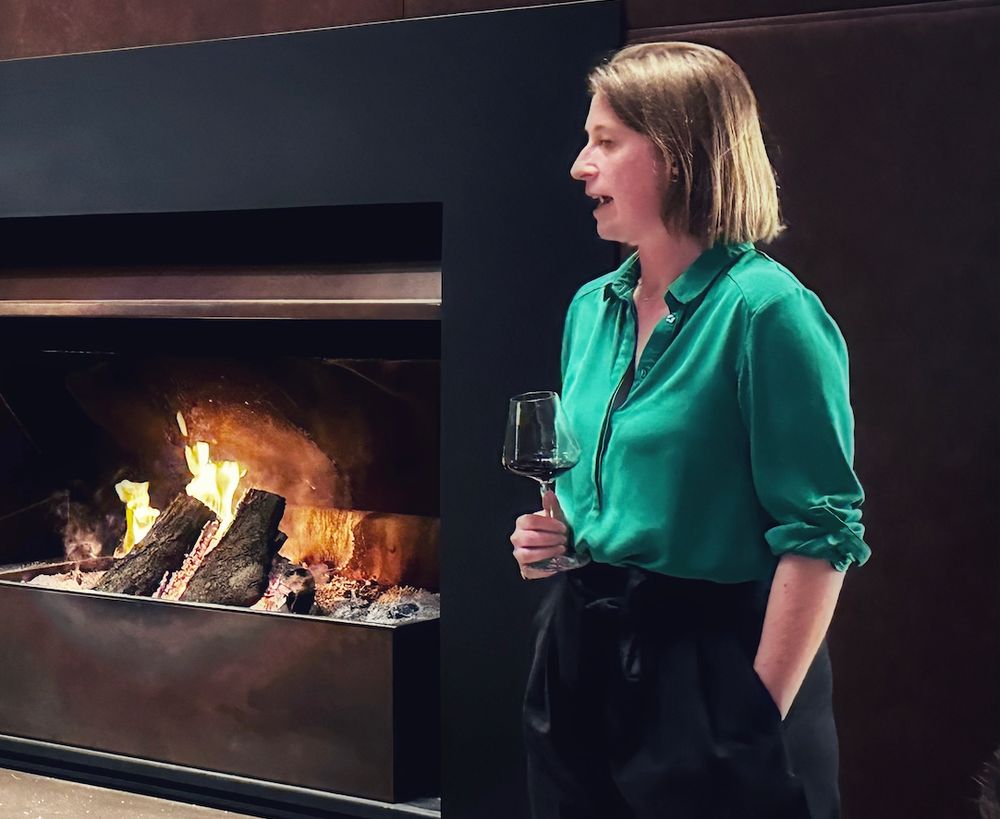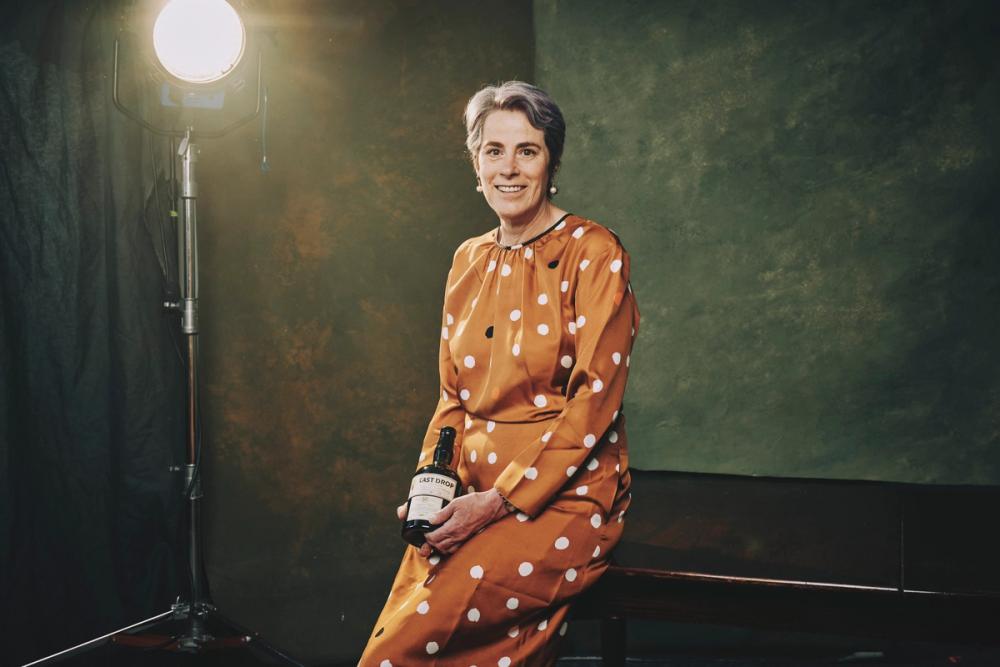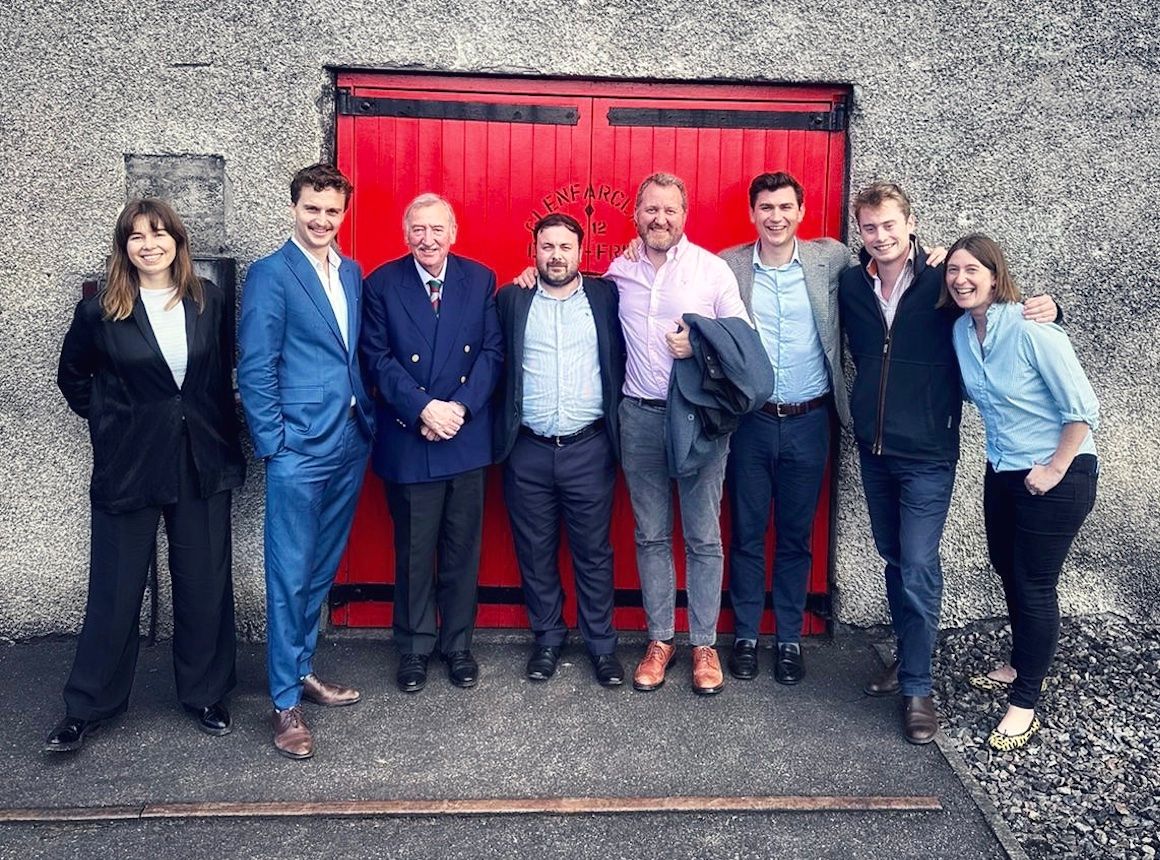How did you get into the wine industry?
I followed the same path as many others. I had grown up with a wine-loving father but never realised that wine could be a career, so I fell into it more or less by accident. I studied French and Italian at university, but career-wise felt quite directionless at that stage. Wanting to improve my French, I looked for a job in France and ended up interning with Jacques and François Lurton in Bordeaux, in the ‘canicule’ summer of 2003. It was an incredible summer to be there, with unrelenting heat, sun-burnt grapes, juniors panicking. The atmosphere was electric, and I was immediately hooked.
On returning home, I went to work at Oddbins whilst doing my WSET exams. I loved the shop floor but eventually wanted my weekends back, so I applied for a private client sales role at Corney & Barrow, and never looked back.
How would you describe your style of management?

Cecily Chappel is a strong believer in creating a healthy, friendly, collobarative workplace for her team at Chelsea Vintners
Friendly, collaborative and approachable. I think that I am open, honest and encouraging, and that I’m the kind of person who is keen to set a great example and listen to advice and feedback from everyone. There is no idea or person too small to make a difference.
I’m also not particularly keen on hierarchy, and instead try to create an environment where everyone has a voice. As my favourite proverb goes: "If you think you are too small to make a difference, you haven't spent a night with a mosquito!”
What is your approach to managing and motivating people?
I want to understand what motivates people. When I start in a new role, I take the time to sit down with everyone to understand why they do what they do, where they want to be, and what interests them. I try and work with every team member to find ways to grow strengths and support weaknesses, and schedule time with everyone on a regular basis; weekly or quarterly depending on how close I am to their role.
I also try very hard to identify and deal with demotivation and frustration head-on and take a solutions-based approach to make sure the whole Chelsea Vintners team are happy and bringing their best.
How do you retain good talent?
Creating a good culture and positive working environment is key. For me, this involves listening, encouraging and giving people the opportunities to succeed, have their ideas heard and make a difference – whether that’s through formal training or collaboration across the business. I am trying to create a place that is enjoyable to work in and nurtures our shared passion. The salaries aren’t life changing, so I want to offer something that’s a joy to be a part of.
I’m not unrealistic enough to think that we will retain all our brilliant staff for the rest of their careers, but I want to ensure that anyone from Chelsea Vintners is recognisable for their calibre and quality wherever they may go.
How do you deal with unmotivated and non-performing members of your team?
I think that lack of motivation and under-performance are two quite distinct types of challenge. For underperformers, I try to take the time to ask the right questions, work out what’s not right and do what we can do to support. Are they not enjoying the role? Is there something that can be fixed? What solutions can we find?
However, it’s sometimes the case that people are simply in the wrong jobs, and if we can’t work together then I retain a sense of realism and am more than happy to help with finding new challenges.
Motivation, however, is quite different. It’s all about finding and understanding the source and doing our best to get the energy back; encouraging employees to look at things with a different perspective, considering other factors outside of work and overall finding out what we can do to help and improve the situation. It all goes back to being present, listening, and being there face to face. Whether it’s performance or motivation related or something else entirely, good communication is absolutely key.
How has the role of business leader changed?

Cecily Chappel says good business leaders have adapted the way they run their companies in a post-Covid world
I think the world has become more transparent, especially in the wake of the Covid-19 pandemic. Many things have changed beyond recognition, particularly the expectations that people have for their jobs, and employers must make sure they are sensitive to this. There is so much more emphasis now on flexibility, lifestyle, mental health, looking after employees and seeing the bigger picture for both business and people.
There’s also an awareness that we have our part to play in terms of sustainability and environmental pressures too - 15 or 20 years ago, these issues were just not discussed in the trade the way they are now.
Have you had business mentors in your career and what have you learnt most from them?
There have been several important people who have guided me along the way. The first is a lecturer from my university days who was able to show me my strengths and weaknesses earlier than I might have realised them on my own or without his guidance. He has been instrumental in opening my eyes to my own potential and recognising when to ask for help, which in my opinion is an underrated, but vitally important skill.
Secondly, Oliver Hartley from Corney & Barrow, who helped to give me the huge opportunity to go out and build the C&B business in Asia when I was just 26. He was there for me both professionally and personally and is a great, collaborative mentor, as well as a great laugh.
Next is Sophie Clark, a great friend who has been brilliant at keeping me mentally sharp, helping me to manage and balance pressure, and maintain a healthy philosophy of taking each day as it comes. She’s been amazing in helping me to take a ‘whole world’ approach, using things such as family, profession, and health as the key pillars to support the important goals I want to achieve in life.
She has always helped me know when to take a step back and evaluate at key points in my life. It’s all too easy to just keep your head down and carry on, but it is so important to come up for air, make sure you’re following the path right for you and make any necessary adjustments.
Finally, my dad. He’s the best problem solver I know and someone I can always go to when I just can’t figure it out. He always seems to be able to find an answer.
Who do you admire in business and why?

Cecily Chappel says she has learnt so much from Rebecca Jago and what she has achieved at Last Drop Distillers
One person immediately springs to mind - Rebecca Jago, who I worked with during my time at The Last Drop Distillers. She has had an incredibly interesting career inside and outside drinks, and now runs the family business (she has stayed in place since TLD were bought by Sazerac).
She is so full of passion and dedication, with a real love of the product and what she does. She’s an amazing storyteller, too; she’s up there with the very best, and I think when you see someone so passionate it’s infectious and really motivates those around you to get on board and help make what they’re doing successful.
What is it that gets you out of bed in the morning in running a business?
Other than the smell of hot chocolate and my two small children. To be honest, I don’t find getting out of bed difficult, because I’ve dedicated my working life to my passion. I had the opportunity post-university to work in finance earning significantly more, but I’ve pursed something that I love and so find that I just don’t get Sunday blues.
There are always tricky moments and challenges, difficult conversations and hard times, but that’s just part of life and I am always happy to take every day as it comes.
What are you doing personally to improve your skills as a business leader to keep up?

It's not just ceos who listen to Steven Bartlett...
I spend a lot of time chatting to friends and peers in the industry to learn and brainstorm, finding out what’s working and not in different areas of the industry. I also seek regular feedback from several key people within Chelsea Vintners, particularly our special advisor Scott and our investors. We take a very collaborative approach to the business, and this is great for continuously improving my skills.
I’m also very keen on podcasts - Diary of a CEO and Disruptors are a couple of favourites. I do also enjoy listening to Real Dictators, although I hope I’m not picking up business hints and tips from that.
If you had not worked in wine and drinks industry what would have been your dream career?
I wanted to be a professional tennis player, playing my favourite sport and travelling the world. I cried when I turned 16 because I knew that dream would never come true.
Favourite business book and why?
With twin boys, finding time to read is tougher than it used to be, but Mindset by Carol Dweck and Measure What Matters by John Doerr have been the most powerful books I've read on business so far. I’d thoroughly recommend to anyone looking to elevate their career.
* You can find out more about Chelsea Vintners and the company that Cecily Chappel leads here.
































